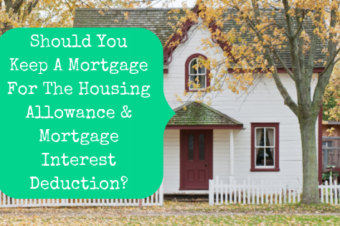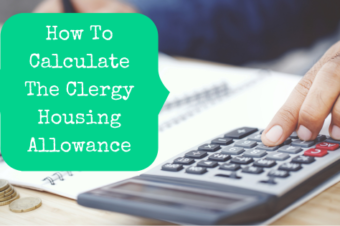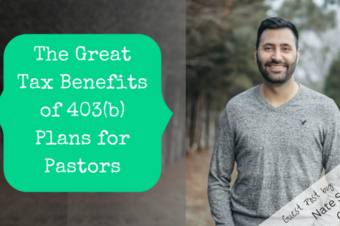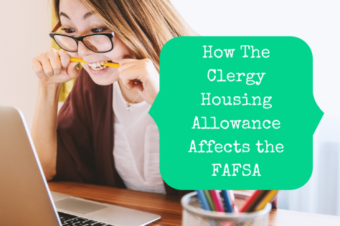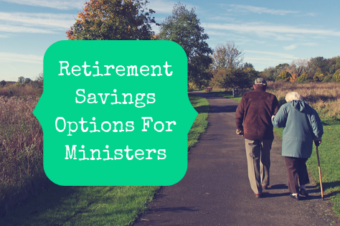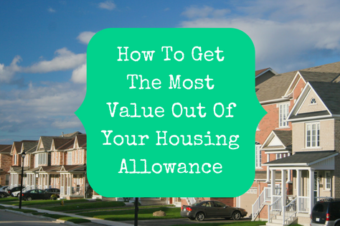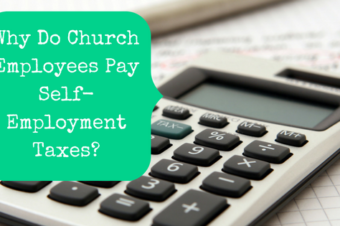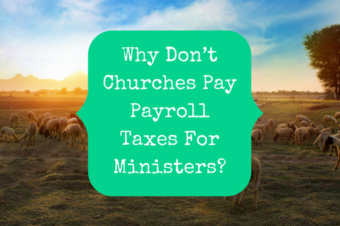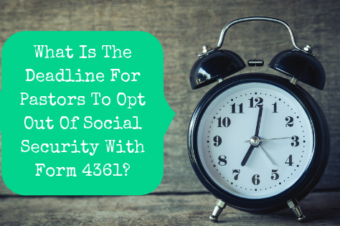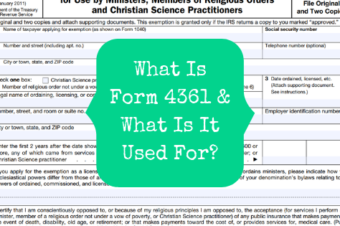The clergy housing allowance is by far the most common topic that I receive questions about. Here are 10 or the most common questions answered to help you get the most value out of your housing allowance:
How does a housing allowance work?
- You, the pastor, calculate what your housing costs will be for the year and submit it to your church.
- Your church approves the housing allowance and does not include it as taxable income in box 1 of your W-2.
- You track your housing expenses throughout the year. Add any excess housing allowance to your taxable income on your tax return when you file.
- If you have not opted out of Social Security you need to include the housing allowance amount as income when calculating your self-employment taxes.
What expenses can be included in the housing allowance?
A housing allowance can cover:
- Down payment on a home purchase
- Mortgage principal and interest payments
- Property taxes
- Homeowner’s insurance
- Structural maintenance and repair
- Landscaping, gardening and pest control
- Furnishings (purchase, repair, replacement)
- Utilities (gas, electricity, water, internet) and trash collection
- Land telephone line
- Cable TV expenses
- Homeowner’s association dues/condo fees
Is the housing allowance the church’s or the pastor’s responsibility?
It is the pastor’s responsibility. The church’s only role is designating and paying the allowance. The pastor must calculate the allowance, document expenses and include the proper housing allowance amounts when filing his or her tax return.
Is a housing allowance considered income for tax purposes?
Not for income tax, but for self-employment taxes. If you have opted out of Social Security you do not pay self-employment taxes so your allowance does not affect your taxes. Housing allowances are exempt from most state income taxes, but you should double check with your particular state.
How much is exempt from federal income taxes?
The IRS specifies that only the lesser of the following can be excluded from your gross income:
- the amount actually used to provide or rent a home;
- the fair market rental value of the home (including furnishings, utilities, garage, etc.);
- the amount officially designated (in advance of payment) as a housing allowance; or
- an amount which represents reasonable pay for your services.
When should I request my housing allowance?
You should get your housing allowance approved prior to the beginning of the year or at the beginning of the year so that you don’t miss out on any of the benefits. An allowance can be approved at any time during the year, but only expenses incurred after the approval will be eligible for the housing allowance.
Is it better to overestimate or underestimate my housing allowance?
Overestimate. If you underestimate your expenses you cannot go back and increase your housing allowance. However, if you overestimate, you can make a correction by including the excess amount as taxable income when you file your taxes.
Can I change my housing allowance from year to year?
Most definitely. If your housing expenses change from year to year so should the allowance you request. When you plan on making a large purchase, such as a bed, deck or house, your requested allowance should include that amount. If you end up not making the purchase, you will simply adjust down the allowance when you file your taxes. If you don’t include the large expense, you will unnecessarily pay taxes on that amount.
Can I still take the mortgage interest deduction?
Yes. Receiving a housing allowance does not preclude you from deducting your home mortgage interest and real estate taxes if you itemize deductions.
Do I need to document my housing expenses?
Yes! Keep all receipts, bills, etc. that apply to your housing allowance. The IRS loves paper trails and if you get audited without one it could get ugly.


